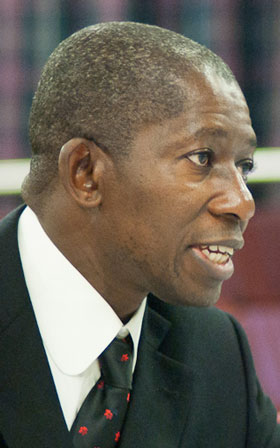
Telkom and Neotel resumed their fight over local-loop unbundling (LLU) on Wednesday, with the smaller operator arguing to the Independent Communications Authority of SA (Icasa) that it is entitled to gain access to its bigger rival’s last-mile network into homes and businesses.
Neotel has sought access to the infrastructure of copper cables since November 2010, after Icasa determined that Telkom’s network constituted an “essential facility”, meaning its competitors may request access under facilities-leasing regulations.
Jerome Wilson, Neotel’s legal representative, says the company has been unsuccessful in gaining the access it wants. He says Telkom was obliged to respond to a request for this access but did not do so adequately and, as such, should be subjected to a penalty from Icasa’s complaints and compliance committee. The penalty cannot exceed R50 000.
“What Telkom was obliged to do, upon receipt of [Neotel’s] request for access, was to provide a response that stated its requirements for entering into an electronic facilities-leasing agreement,” says Wilson.
He concedes it may be difficult technically for Telkom to supply Neotel with access, but he argues it is by no means impossible. “There’s nothing impossible about that process. All that is in dispute is the procedure by which [gaining access] will take place and the legislation that will govern it.”
Among other things, Telkom is arguing that Icasa’s complaints committee should respect, and defer to, existing regulations laid out by the authority. “We submit that this is wrong,” says Wilson. “There is no legal basis in common or constitutional law that deals with such a case. The [committee] must look to its own statutory basis for its powers. One of those is the Icasa Act, which talks about the [committee] investigating and hearing matters referred to it by the authority.”
According to Neotel, Telkom argues that its last-mile network isn’t an essential facility as defined in law. “But it is quite obvious that it [is],” says Wilson.
Vincent Maleka, the advocate representing Telkom, says Neotel is trying to gain access to the company’s last-mile network before the separate process of local-loop unbundling — “so carefully initiated by Icasa” — has been completed.
He says Telkom differs from Neotel’s view of the issues and that there are a number of regulatory steps initiated by Icasa around unbundling that preclude it from providing access before those steps have been completed.
Maleka says Telkom responded to Neotel’s request for access but that its rival “didn’t like the response”. Telkom denied a formal request from Neotel for access to its Rosebank (Johannesburg) and Benmore (Sandton) telephone exchanges.
He adds that Telkom is not required to pay a penalty, as requested by Neotel, because such a penalty is not raised in Neotel’s original request to Telkom. Nor is it described in Neotel’s complaint to Icasa.
“LLU’s role is not to replace one service provider with another, but about ensuring access for more people and that there is competition at the access level. What Neotel wants is antithetical to this. It wants to substitute one service provider with another, ahead of [Icasa’s] regulations on unbundling.”
Maleka says it has been agreed that the process of LLU requires a new regulatory framework to ensure Telkom is not unfairly disadvantaged or forced to bear the brunt of the costs of the access-line deficit, where the operator loses money on every fixed line in service, and wants Icasa to ensure that the process takes this into account.
“Access is not an unqualified right,” says Maleka. “Access requires the meeting of certain conditions.”
The hearing continues on Thursday. — (c) 2012 NewsCentral Media




